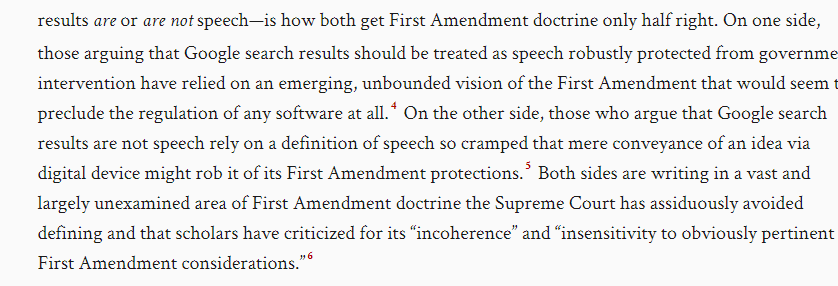
@MoneyGodRAI deserves to be at the top here--a non-pegged but volatility-resistant store of value fully collateralized with only cryptonative assets (currently ETH). But here are my broader legal-ish thoughts on the stablecoin space:
https://twitter.com/TokenBrice/status/1441680595550150666
Pegged stablecoins are either collateralized or un-collateralized.
Collateralized pegged stablecoins (like DAI, not RAI) are probably all securities & regulation-vulnerable. Even if some are not securities, they require too much trust & pose too much systemic risk.
Collateralized pegged stablecoins (like DAI, not RAI) are probably all securities & regulation-vulnerable. Even if some are not securities, they require too much trust & pose too much systemic risk.
Un-collateralized 'algo' stables have failed repeatedly, but in theory can be non-securities & reg-resistant because not 'governed' or 'backed'--they just rely on a native incentive for arbing to peg, & 'hope' that people sufficiently respond to that incentive to hold the peg.
I am confident that algo stablecoins need not be "investment contracts" for the same reason as with Bitcoin--the required 'efforts' are undertaken by unaffiliated 3rd parties (arbers, miners) running independent competitive businesses which generate consensus as a side-effect.
Because algo stablecoins aren't 'backed' by 'collateral' and do not involve borrowing, interest rates, etc., they are also obviously not a "bond, debenture, evidence of indebtedness, certificate of interest...collateral-trust certificate," etc. and, thus, are not debt securities.
But another question is whether the algo system's 2nd token (the unstable one with potential upside) is a security. If so, the system is centralized & vulnerable--a regulator can crush arbs' demand for the 2nd token by crushing the token issuer, & thus also wreck the peg.
In my mind, this is where algo stablecoins have failed so far--the 2nd token was a mere 'governance token' whose only potential source of *extrinsic*, *non-circular* value was the fealty of a small, early-stage dev team. This led to rugs and collapses.
I have absolutely no idea whether UST will work or scale long-term, but I do think it's the last best hope for algo stablecoins--why? Because it was carefully built with hooks for independent suppliers of extrinsic, non-circular value.
With UST, the '2nd token' (LUNA) is not a mere DeFi governance token--it's also a block production/validation token and gas token. This creates the *chance* of gaining non-circular, extrinsic value drivers to LUNA if Terra becomes a popular smart contract platform.
On the flipside, UST is accepted by real, meatspace merchants through the Chai app/network, which creates the *chance* of gaining non-circular, extrinsic value drivers to UST.
Thus, both sides of the arb are addressed, on a *decentralized* basis--LUNA demand could be driven by third-party NFTs, DeFi apps, etc. and UST demand could be driven by third-party meatspace merchants & the products they sell.
Once this flywheel gets spinning fast enough, LUNA value-increasing-efforts are sufficiently decentralized like ETH's. Regulating LUNA as a security would make no sense, and, by extension, UST would be regulation-resistant (unlike other pegged coins).
Will it work? Who knows. Could it work? I don't see why not. I'm a Terra n00b & token-econ lightweight, but the Terra community reminds me of early Ethereum days & token econ experts like @ZeMariaMacedo make me want to believe:
https://twitter.com/ZeMariaMacedo/status/1435654966585200645
Likewise, with devs like @lukedelphi involved, I'm cautiously optimistic that Terra can attract sufficient dev talent to sustain an ecosystem (though EVM architecture would be a huge plus for gaining devshare):
https://twitter.com/lukedelphi/status/1441374924086681600
So, if you care about decentralization: play with RAI & UST & wind down your corporate stablecoins. Corporations can cave to regulators or profit by hiding risk, blacklisting addresses & coercing contentious fork outcomes. We need trustless stables.
medium.com/dragonfly-rese…
medium.com/dragonfly-rese…
• • •
Missing some Tweet in this thread? You can try to
force a refresh





